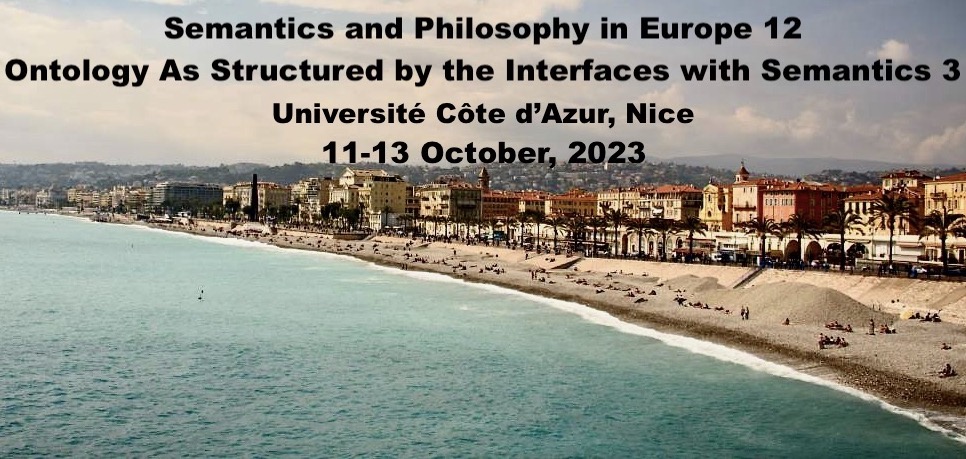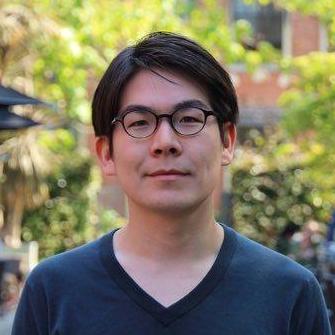
|
|
|
Interviews > Interview with Wataru Uegaki

Dr. Wataru Uegaki is a lecturer in semantics at the University of Edinburgh.
OASIS: Tell us a little about yourself.
WU: I'm a linguist mostly interested in semantics, and I'm interested in the semantics of attitude predicates and the syntax-semantics of clausal complementation, so that's the topic that I wrote my PhD dissertation in. More recently I'm interested in semantic universals and how we can explain them in terms of grammar-internal and grammar-external factors.
I'm from a rural southern city in Japan and one of the things that might be slightly unusual about my career path is that I've been to a lot of different countries. I went to Tokyo to do my undergraduate and masters degrees. Then I moved to the states to do my PhD at MIT, followed by a short postdoc stint in Paris. Then to an assistant professor position at Leiden and then after that to Edinburgh. I've been to a lot of different universities with a lot of different academic and institutional cultures and different types of colleagues and students, and different teaching environments.
OASIS: What would help linguists and philosophers talk to each other?
WU: I feel like linguists and philosophers, especially philosophers of language, are interested in the same type of questions and have the same type of goals, but one of the things that hinders communication between them is that the basic unit of puzzles, or how they conceptualize the puzzles, is different in the two fields. Linguists conceptualize puzzles in terms of minimal pairs, but philosophers conceptualize puzzles in terms of paradoxes. At least for some of the puzzles, you can actually find a way to conceptualize it in terms of minimal pairs or paradoxes. If a linguist knows how to reformulate a puzzle they're interested in in terms of paradoxes, that will help them communicate it to philosophers, and vice versa.
OASIS: How old were you when you discovered linguistics? What got you excited about it?
WU: I got interested in language in general when I was about six. I was born in Japan but I went to the US for just one year because of my father's job when I was five. Apparently I spoke English very fluently after only a few months. I was even speaking English on the phone. Then when I came back after a year, I quickly forgot English. And that experience was really striking to me. It was frustrating, the fact that I lost this ability, but at the same time, it was really interesting, how something that was apparently so easy for me at some point was completely lost. And at the same time, I was also aware that my Japanese ability was completely unlike my English ability - I was never going to lose my Japanese ability.
Of course I didn't know about linguistics at the time. At university, I learned about linguistics and a lot of the questions that were the core questions in linguistics and generative grammar appealed to me, because I felt it would help me understand these kinds of questions brewing in my mind since I was six or seven.
OASIS: Tell us about a mentor you'd particularly like to pay tribute to.
WU: This is about someone I met when I was a masters student in Tokyo. He was already a PhD student studying at Ohio State University, Yusuke Kubota. I think I met him when he was back in Tokyo during the summer holidays. Just by coincidence, we met and talked to each other and I learned that he was working on syntax and semantics, and I was very much interested in the topic, and we began talking, and we organized a reading group. If I remember correctly we read Culicover & Jackendoff’s Simpler Syntax. Basically since that point, he took me under his wing, and helped me in so many ways to develop various research skills. He taught me how to look at data, he taught me how to write research papers, and he gave me extremely critical, but also extremely supportive comments on my work. We ended up writing a SALT paper together, which was my first publication. That experience helped me immensely. I probably wouldn't be where I am now without his support.
Thinking back, there's no reason - he didn't have any motivation to do it, I was just a masters student. I wonder why he did it! Now that I'm past the career stage he was in, it's amazing to me. Somehow he offered his help. It's very striking to me now. What he did was just selfless.
There's one piece of advice that I didn't follow: He told me not to go to MIT!
OASIS: Tell us about a student you've learned something from.
WU: This is about an undergraduate student who was taking my intermediate semantics course, a third-year undergraduate course for students who'd already taken intro linguistics and were ready for compositional semantics. In this course I was introducing basic technical machinery like lambda calculus, and at one point she they came to my office after lecture and asked me why we were doing this. I tried to answer the question first by telling them how the tools that the students were learning helped them analyze the interpretation of interesting sentences in a formally rigorous fashion - trying to motivate the tools
from the perspective of a language nerd, in retrospect. They didn't like that. And they kept on asking me why.
And I kept trying to answer their question by saying how the theory built on the tools would be useful for other computational applications of linguistics, or other applications, such as the legal domain for example. They didn't like that either. At the end of the day, I tried to motivate the tools in terms of how it relates to the fundamental questions of linguistics - how it would address the questions that we're interested in. Probably that was close to what they wanted, but I don't think they were completely satisfied by my answer.
The bottom line is, I learned from them that I should always think about “why”, when I'm teaching this stuff. And students will be satisfied by different answers. Some students are like us and will get excited by linguistic puzzles, some students will be excited by the potential application of these tools. But some students will want a deeper answer to this question. So after this interaction, now when I'm teaching, I always keep this in mind. You have to try to answer this “why” question.
OASIS: Thanks for joining us for this interview. We look forward to your talk at OASIS 3 / SPE 12.
WU: I'm looking forward to the conference. Thank you.

